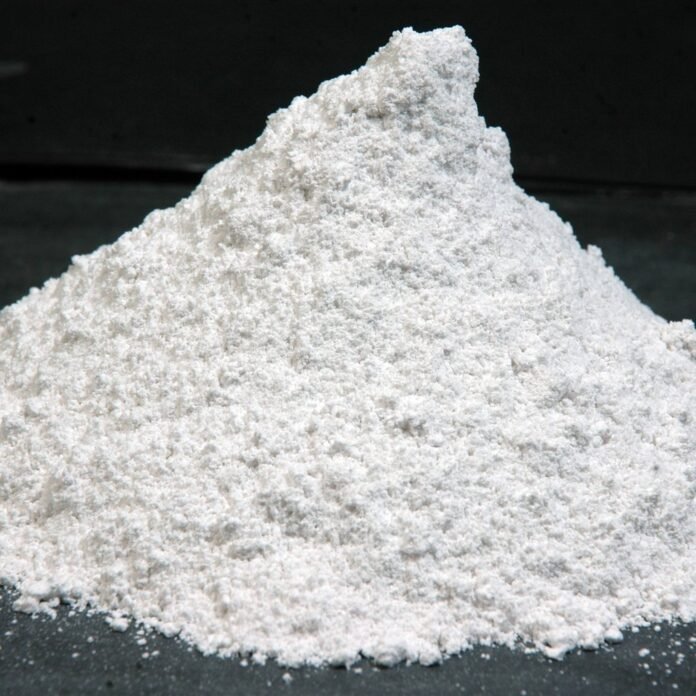Dolomite powder is a versatile mineral that plays an important role in enhancing water quality, particularly in environments prone to acidity or contamination. Made from a naturally occurring mineral called dolomite, this powder is commonly used for various environmental and industrial purposes. It is especially useful in improving water quality due to its ability to adjust pH levels, reduce impurities, and offer vital minerals for healthy aquatic ecosystems.
What Is Dolomite Powder?
Dolomite is a type of limestone that contains both calcium and magnesium carbonate. When it is ground into a fine powder, it becomes an effective agent for various applications, especially in water treatment. This mineral-rich powder can be easily mixed into water, where it dissolves slowly, releasing calcium and magnesium ions. These ions are essential for balancing water chemistry, making dolomite powder highly valuable for water quality maintenance.
Benefits of Dolomite Powder in Water Treatment
Using dolomite powder in water treatment has several key benefits:
- pH Level Stabilization: In natural bodies of water, maintaining a neutral pH level is essential for aquatic health. High acidity can harm fish and plant life, whereas alkaline conditions can lead to mineral buildup and water hardness. Dolomite powder helps by buffering water, which means it neutralizes acidic conditions and brings the pH closer to a neutral range. This makes the water more hospitable to aquatic life and reduces risks of chemical imbalances.
- Mineral Addition for Aquatic Health: The calcium and magnesium present in dolomite powder are beneficial for aquatic plants and animals. Calcium is necessary for shell and bone formation in many aquatic species, while magnesium aids in photosynthesis for underwater plants. Adding these minerals to water through dolomite powder can support a healthier ecosystem.
- Reducing Heavy Metals and Pollutants: One lesser-known benefit of dolomite powder is its ability to capture and bind with certain pollutants in water, including heavy metals like lead, mercury, and cadmium. These harmful metals can have serious effects on both water quality and aquatic organisms. Dolomite powder assists in removing these contaminants, improving overall water quality and creating a safer environment for wildlife.
How Dolomite Powder Helps Control Eutrophication
Eutrophication is a process where water bodies become overly enriched with nutrients, leading to excessive algae growth and oxygen depletion. This phenomenon can turn vibrant lakes or rivers into areas with murky, low-oxygen water, which is harmful to fish and other aquatic life. By stabilizing pH levels and providing controlled levels of calcium and magnesium, dolomite powder helps counter the effects of eutrophication. In addition, dolomite reduces the solubility of phosphorus, which is one of the primary contributors to algae blooms.
Usage of Dolomite Powder in Industrial Water Treatment
In industrial water treatment, dolomite powder is used for its buffering properties to prevent corrosion in pipes and equipment. When water is too acidic, it can cause corrosion to metal surfaces in water systems, leading to maintenance issues and safety concerns. By using dolomite powder to adjust the pH, industries can extend the life of their water treatment systems, reduce maintenance costs, and minimize metal contamination in the water supply. Many dolomite powder exporter in India supply high-quality dolomite specifically for such industrial applications.
Agricultural Applications and Their Impact on Water Quality
Dolomite powder is also applied in agriculture as a soil conditioner, which indirectly benefits water quality. By improving the soil’s nutrient profile and helping balance its pH, dolomite powder supports plant health and growth. Healthier crops require less chemical fertilizer, which reduces the amount of runoff entering local water bodies. This is particularly valuable for reducing nitrate and phosphate pollution, which can contribute to water contamination. Many dolomite powder manufacturers in India provide this mineral to farmers as a sustainable option for soil treatment.
Environmental Benefits of Using Dolomite Powder
In addition to improving water quality directly, dolomite powder has broader environmental benefits. It is a naturally occurring mineral, which means it does not introduce harmful chemicals or synthetic additives into the water. Unlike other water treatment chemicals, dolomite powder dissolves slowly and provides sustained benefits over time without altering the ecosystem in harmful ways. This makes it an eco-friendly choice for those seeking to improve water quality without negatively impacting the environment.
Choosing Quality Dolomite Powder for Water Treatment
The effectiveness of dolomite powder in water quality improvement depends largely on its purity and composition. It’s essential to use high-quality dolomite powder with minimal impurities for optimal results. Various dolomite powder exporters in India ensure that their products meet high standards of purity. These manufacturers provide dolomite powder that is carefully processed to ensure it contains the right balance of calcium and magnesium. Selecting a reliable source for dolomite powder is crucial for industries, farmers, and environmental managers seeking effective water treatment solutions.
Conclusion
Dolomite powder offers a natural and effective solution for water quality improvement. Its ability to stabilize pH, provide essential minerals, reduce pollutants, and control eutrophication makes it a valuable resource for various applications. Whether used in natural water bodies, industrial treatment systems, or agricultural fields, dolomite powder supports cleaner, healthier water and contributes to environmental conservation.



